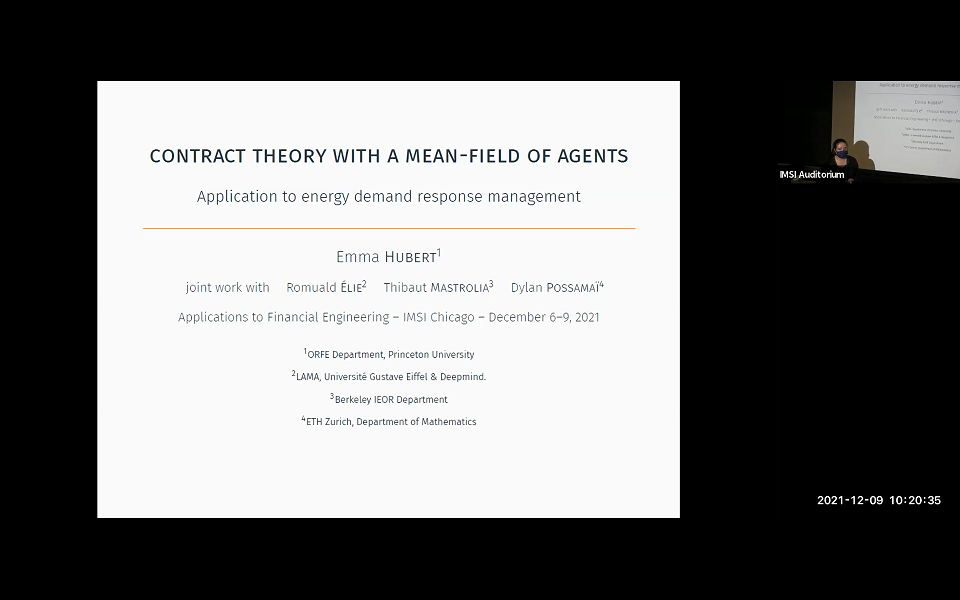Contract theory with a mean-field of agents: application to electricity demand response
Presenter
December 9, 2021
Abstract
In this talk, we will introduce a problem of contract theory, in continuous-time, with a continuum of agents with mean-field interactions. The incentive model we formulate, where a principal can contract with an infinite number of agents, generalises the one-agent framework by Aïd, Possamaï and Touzi (2019). The motivation behind this extension is to improve the results obtained for the application considered in the previous paper, i.e. the electricity demand response program. More precisely, the principal (an electricity producer, or provider) contracts with an agent (a consumer), to incentivise him to decrease the mean and the volatility of his energy consumption during high peak demand. The mean-field formulation is justified by the fact that the electricity producer/provider is facing a large number of consumers, and should optimise the total consumption, not only the consumption of a particular agent. In addition, we introduce a common noise, impacting all consumption processes, in order to represent the common random environment in which consumers evolve. Indeed, the weather conditions have a significant impact on the agents' electricity consumption. Therefore, the principal continuously observes the consumption of a continuum of risk–averse consumers, but not the efforts they make in the different usages, and designs contracts in order to reduce her production costs. This mean-field framework leads us to consider a more extensive class of contracts. In particular, we prove that the producer can benefit from considering the mean–field of consumers by indexing contracts on the consumption of one agent and aggregate consumption statistics from the distribution of the entire population of consumers. We illustrate these results numerically.
